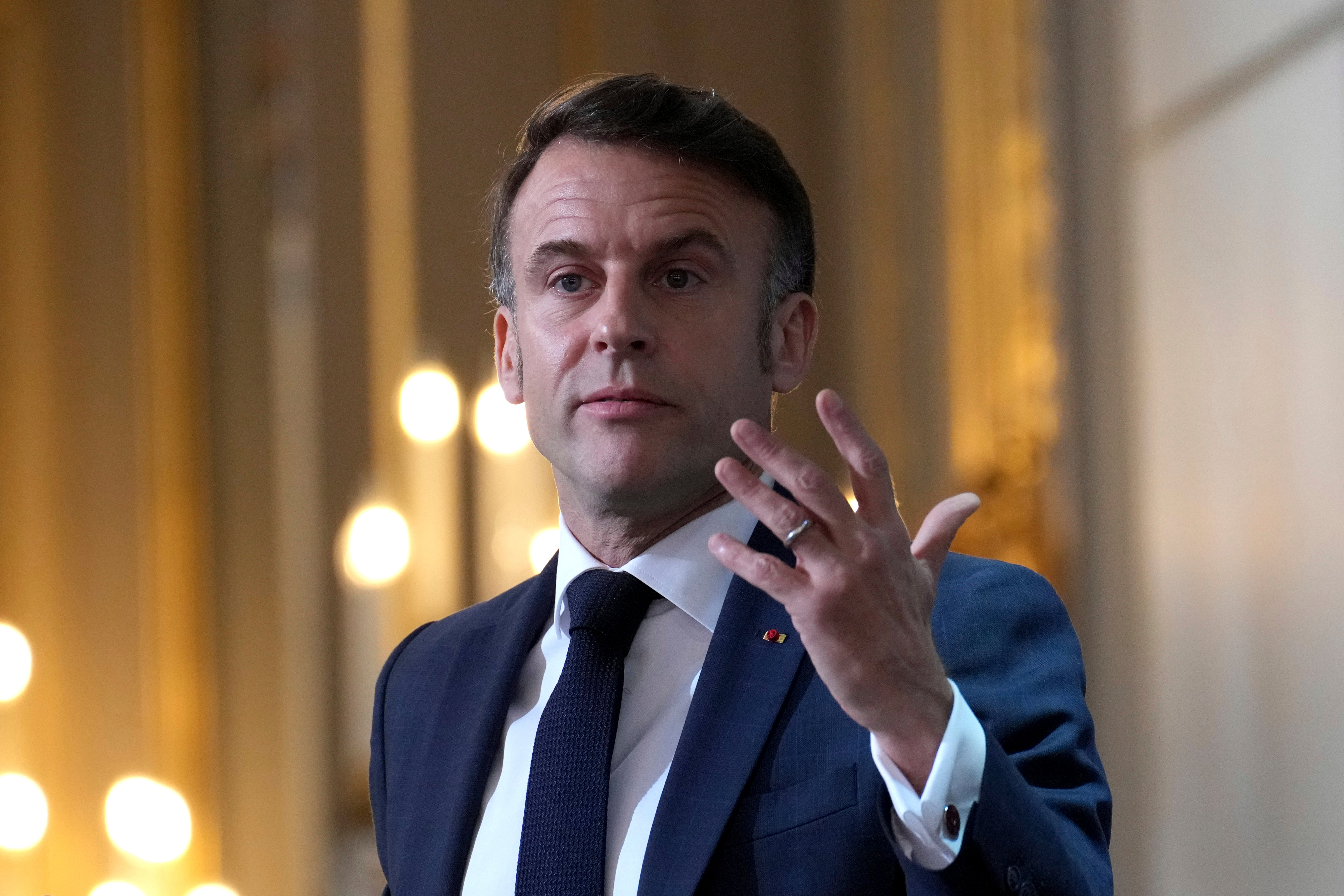Senegal and Chad say ousting of French troops was their sovereign decision
Senegalese and Chadian leaders say the ousting of French troops from their territories was their sovereign decision, rejecting remarks from French President Emmanuel Macron that suggested otherwise

Senegalese and Chadian leaders said that the ousting of French troops from their territories was their sovereign decision, rejecting remarks from French President Emmanuel Macron that suggested otherwise.
Senegal, Chad and Ivory Coast last month announced the departure of French troops just as Paris was devising a new strategy that would sharply reduce its permanent troop presence in Africa.
Macron said Monday at an annual meeting of foreign ambassadors that France had “proposed to the African heads of state to reorganize our presence.” He added, "As we are very polite, we have given them the priority of the announcement.”
Senegal’s Prime Minister Ousmane Sonko wrote on X late Monday, “I would like to say that, in the case of Senegal, this assertion is totally erroneous.”
“No discussion or negotiation has taken place to date and the decision taken by Senegal stems from its sole will, as a free, independent and sovereign country,” Sonko added. “France has neither the capacity nor the legitimacy to ensure Africa’s security and sovereignty."
French troops have already left Mali, Burkina Faso and Niger, which are ruled by military juntas.
In 2023, Macron promised a “new security partnership” with reduced numbers of French troops on the continent in a process he said would be based on needs expressed by African partners.
Earlier on Monday, Chadian Foreign Minister Abderaman Koulamallah expressed “deep concern” following Macron’s remarks.
Macron’s words “reflect a contemptuous attitude towards Africa and Africans,” he said in a statement published on social media. “French leaders need to learn to respect the African people and to recognize the value of their sacrifices.”
He added that the 60 years of French presence in Chad “has often been limited to its own strategic interests, without any real lasting impact on the development of the Chadian people.”
Since the independence of French colonies in Africa, Paris has maintained a policy of economic, political and military sway which at the time had been dubbed Françafrique, including having thousands of permanent troops in the region.
France currently has 600 troops in Ivory Coast, 350 in Senegal and 350 in Gabon, as well as around 1,500 in Djibouti. It has had 1,000 troops in Chad.
France’s Defense Ministry said the role of French troops in Africa is to train local soldiers and reinforce their capacities to fight extremism, mainly in peacekeeping, intelligence and logistics. But critics say keeping boots on the ground also has allowed Paris to retain influence and protect political regimes favorable to France.
___
Associated Press writer Sylvie Corbet in Paris contributed to this report.